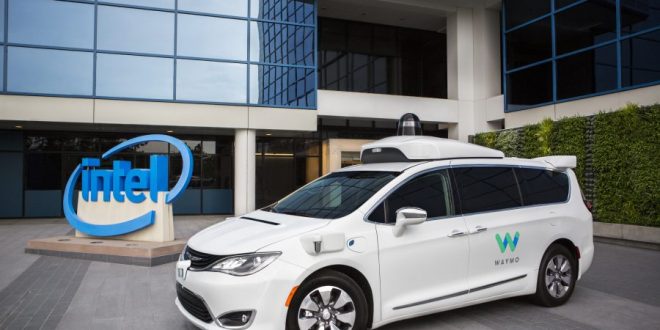Waymo—the Google self-driving project that spun out to become a business under Alphabet—said Monday it’s using Intel chips as part of a compute platform that allows its self-driving Chrysler Pacifica hybrid minivans to process huge amounts of data so it can make decisions in real time while navigating city streets.
The chip-maker publicly stated today that it has been partnering with Waymo since 2009. Intel has been supplying Xeon processors, Arria field programmable gate arrays (for machine vision), and gigabit ethernet solutions (to let all the various components talk to each other).
“With three million miles of real-world driving, Waymo cars with Intel technology inside have already processed more self-driving car miles than any other autonomous fleet on US roads,” wrote Intel CEO Brian Krzanich in a blog post announcing the news.
Working with Waymo isn’t Intel’s only foray into autonomous driving. For example, Ford went with Intel processors for its autonomous R&D vehicles. Last year, Intel announced that it was partnering with BMW and Mobileye to collaborate on a self-driving car called the iNEXT that would launch in 2021. Then in March of this year, Intel bought Mobileye for $15.3 billion and integrated its own Automated Driving Group into the Israeli company. And in August, Fiat Chrysler Automobiles revealed that it, too, was joining the BMW/Intel autonomous vehicle program.
Obviously, Intel’s rivals aren’t content to leave it alone in this space. Nvidia, in particular, has been working hard on this area, partnering with the likes of Tesla, Audi, Bosch, and others to make its Drive PX the go-to platform for autonomous vehicles.
Agencies/Canadajournal
 Canada Journal – News of the World Articles and videos to bring you the biggest Canadian news stories from across the country every day
Canada Journal – News of the World Articles and videos to bring you the biggest Canadian news stories from across the country every day



